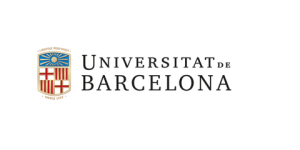Today, I am happy to announce the work of two Center for Advancement of the Steady State Economy (CASSE) staff members, Rob Dietz and Dan O’Neill. They have published a new book, titled Enough is Enough: Building A Sustainable Economy in A World of Finite Resources, which is now available on Amazon (Note: the first $5,000 of sales will go directly to CASSE).
Below, I have inserted several choice endorsements for the book, along with the forward, written by Herman Daly. Fortunately, from the perspective of many, the authors spend significant time explaining the need for stable populations as one part of a workable steady-state economy.
“Humans seem to be intent on confirming the argument of biologist Ernst Mayr that higher intelligence may be a lethal mutation. But the grim prognosis is not inevitable. This lucid, informed, and highly constructive book shows that with the will to act, solutions can be found to build a steady-state economy geared to meeting human needs.” -Noam Chomsky
“If you think there must be a better way forward than more of the same, then Enough Is Enough is the book for you. It tackles our affluenza, our growth fetish, and our wildly unfair social order head-on and points the way to a better place. I highly recommend it.” -James Gustave Speth, former Dean, Yale School of Forestry and Environmental Studies; cofounder, Natural Resources Defense Council; and author of America the Possible
“Two qualities that allegedly distinguish humans from other species are high intelligence and the capacity for forward planning. At no time in history has there been a greater need for these qualities or less evidence of their existence-the global human enterprise is on a trajectory toward social and ecological collapse. But clear-thinking, forward-looking people can take heart. Enough Is Enough provides both the unassailable rationale and the visionary plan the world needs to live well, more equitably, and sustainably within the means of nature.” -William Rees, Professor of Public Policy and Ecological Economics, University of British Columbia, and cocreator of the ecological footprint
Forward To Enough is Enough
by Herman Daly, Professor Emeritus, School of Public Policy, University of Maryland
I have long wanted to write a book on the subject of “enough” but never did. Now I don’t have to because Rob Dietz and Dan O’Neill have done it in a clearer and more accessible way than I could have. Therefore it is a special pleasure for me to write a foreword calling attention to their important contribution.
Enough should be the central concept in economics. Enough means “sufficient for a good life.” This raises the perennial philosophical question, “What is a good life?” That is not easy to answer, but at a minimum we can say that the current answer of “having ever more” is wrong. It is worth working hard and sacrificing some things to have enough; but it is stupid to work even harder to have more than enough. And to get more than enough not by hard work, but by exploitation of others, is immoral.
Living on enough is closely related to sharing, a virtue which today is often referred to as “class warfare.” Real class warfare, however, will not result from sharing, but from the greed of elites who promote growth because they capture nearly all of the benefits from it, while “sharing” only the costs.
Enough is the theme of the story of God’s gift of manna to the ancient Hebrews in the wilderness. Food in the form of manna arrived like dew on the grass every morning and was enough for the day. If people tried to gather more than enough and accumulate it, it would spoil and go to waste. So God’s gift was wrapped up in the condition of enough-sufficiency and sharing-an idea later amplified in the Lord’s Prayer, “give us this day our daily bread.” Not bread for the rest of our lives or excess bread with which to buy whatever luxuries we may covet, but enough bread to sustain and enjoy fully the gift of life itself.
This story from Exodus has parallels in the thoughts of pioneer ecological economist and Nobel Prize-winning chemist, Frederick Soddy. Soddy observed that humanity lives off the revenue of current sunshine that is gathered each day by plants with the aid of soil and water. Unlike manna some of the sunshine was accumulated and stored by geologic processes, and we have consumed it lavishly with mixed results. Today we also try to accumulate surplus solar income and exchange it for a permanent lien on future solar income. We then expect this surplus, converted into debt in the bank, to grow at compound interest. But the future solar-based revenue, against which the debt is a lien, cannot keep up with the mathematics of exponential growth, giving rise to debt repudiation and depression.
For the Hebrews in the wilderness the manna economy was designed with “enough” as a built-in feature. Our economy does not have that automatic regulation. We have to recognize the value of enough and build it into our economic institutions and culture. Thanks to Dietz and O’Neill for helping us do that.


